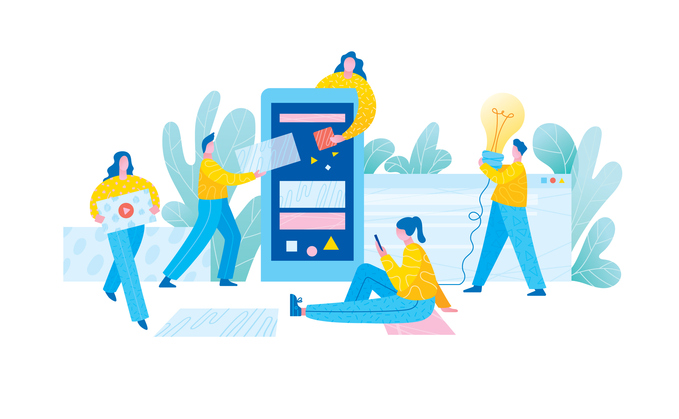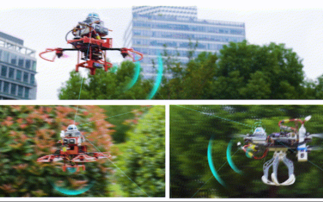
All digital modernisation initiatives depend on enabling software developers to write great software applications. Traditionally, software developers have spent a huge amount of time wrestling with data, working around the limitations of legacy systems. Organisations need to enable software developers to build quickly and efficiently by removing the friction, especially in a climate of economic uncertainty where agility and cost efficiency are top of mind.
With MongoDB Atlas, a developer data platform, enterprises can enable their software developers to operate with speed and agility while putting data at the core of their business even when they find resources and budget getting tighter.
Computing spoke with Andrew Davidson, SVP of Products at MongoDB, to learn about democratising the ability to build ‘smart' apps and the exciting developments that occur as a result.
Why should businesses be opting for NoSQL (document model) database programs like MongoDB's, instead of traditional ones?
"We're in the very early stages of a long-term secular shift. When you think about the relational, table-based data model that came out of the 1970s, the model was anchored to the key cost bottleneck of the time - storage costs. Today, storage and infrastructure building blocks are no longer bottlenecks. Instead, the key cost obstacle is developers' minds.
"We need to be empowering developers as the artisans of our new digital economy. Organisations must give developers the right open and composable abstractions to build with.
"MongoDB's document data model gives developers a native, idiomatic way of interacting with data that for the first time doesn't force them to transform their data into tables. Our platform gives them the freedom of having a flexible model, enabling coding in the way they already think at the data layer. We've coupled that with being a distributed system early on, synergistically with the rise of cloud."
What have been the main data challenges for organisations in the past few years?
"The key data challenge is how to build software and applications effectively but quickly and achieve this where data is born and where it can be put to use. Operational data challenges often get lost in this debate - where software developers are toiling every day. These challenges hold back the ability for people to build applications and generate interesting new experiences. Unlocking the data where it's born is how to start building interesting business value.
"There's an enormous amount of management overhead that can go into traditional data systems that need to be augmented by key value systems, search engines, and caches, each requiring its own interfaces for developers with its own operational best security or patching practice.
"To be able to flip that on its head and have one declarative model managed with modern operational paradigms to give the builder (application developers) exactly what they want - transactional capabilities, search capabilities, application-driven analytics capabilities, device synchronisation capabilities - enables teams to move faster with autonomy and self-service agility."
How will ‘smart' apps, with embedded intelligence, be a gamechanger? Where does MongoDB fit in?
"There are classic examples - using the embedded intelligence in an industrial supply chain or manufacturing context to predict a machine failing or maintenance needs. Or with fraud analytic scenarios that need real-time payment determinations of what is real vs fraudulent. When it comes to application-driven analytics, it involves not just human visibility of insights, but being able to have software on top of software to make decisions and take actions.
"Personally, I'm excited about how MongoDB will be employed in a way we don't yet know because we're making things so much more accessible, democratising access to powerful building blocks for builders. Just as technology shifted with the rise of mobile or cloud and possibilities were consequently opened up in ways no one could have predicted These building blocks will enable meaningful changes to all our lives. I'm particularly excited about the power of Atlas Search, search will be the ubiquitous front door into so many applications, and it will power so many of the experiences we know and love (think auto-complete, faceting and more). For teams that don't have dedicated specialist teams, building with search natively out of the box in their database is a game changer that will enrich so many of the smart applications we'll all use.
What are the benefits to democratising access to data and analytics?
"Increasingly we're in a software-defined economy, meaning software developers are critical to every kind of business. Organisations can struggle to make developers effective or productive, not to mention they are expensive, hard to retain and difficult to hire. Giving developers a data model aligned to where they write their code, and the objects in their code can go directly to the database, means they can move much faster. There's no need to bolt on a different engine, database, or data system for each feature and each different application."
"Smart, intelligent applications are easier to build by more and more people. MongoDB Atlas gets 150,000 people signing up every month. There's a stadium full of people every month wanting to use a developer data platform. There are people coming up with a new idea that we've never thought of before. There's going to be so many more things that will enhance our lives in ways we're not thinking about yet.
"The number of developers is on the rise and it's interesting to watch more traditional enterprises and governments see this growing dynamic and strive to get a step ahead to avoid disruption. There's going to be empowerment of the citizen developer."
What should organisations be prioritising for investment in the new year amid economic uncertainty?
"Across industries we're facing a time of increased investment scrutiny. Leaders right now are focused on reducing cash burn as well as prioritising what matters most for their company and its future. Organisations need to be investing in adopting technologies that allow them to do more with resources in an agile way. I think it's a question of modernising where appropriate onto platforms that allow sophistication and agility - but be prudent about it.
"The ability for software engineers to build software applications that express the critical internal business processes, external customer-facing experiences, and internal employee experiences are the lifeblood of these companies. Today, all industries run software on top of software with layers of microservices largely invisible to us. People tasked with building all of this are the lubrication of the digital economy - they need to be able to do an enormous amount with less. With expectations to move faster, or if your competitors are raising the bar and you're not - you're being left behind."
To find out more about MongoDB visit mongodb.com
This post was funded by MongoDB.

















